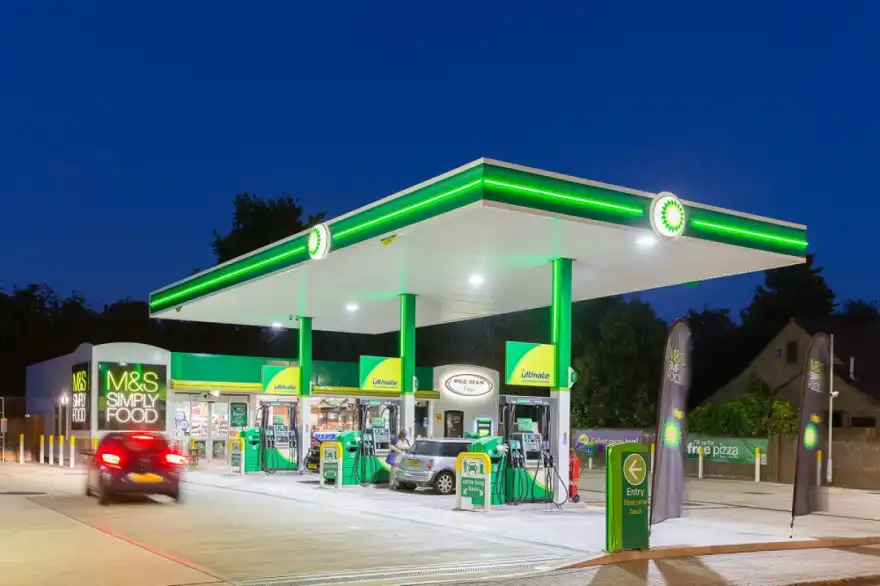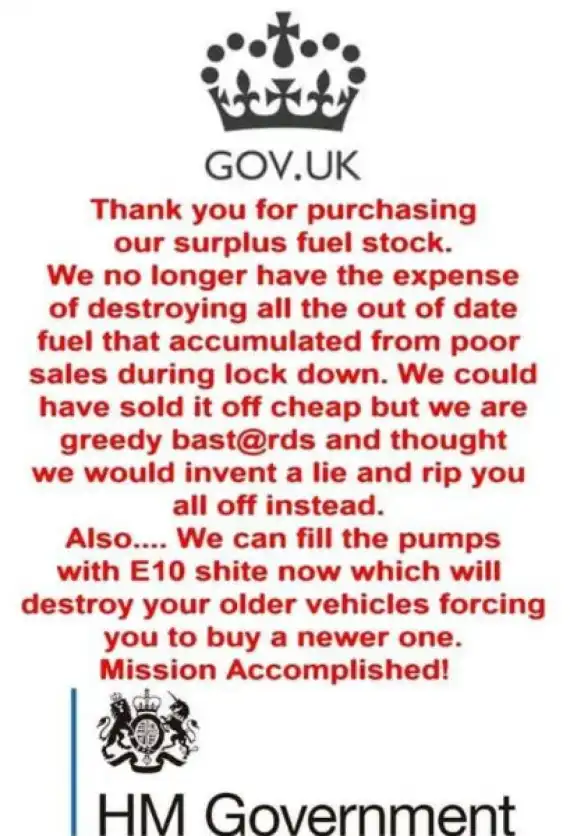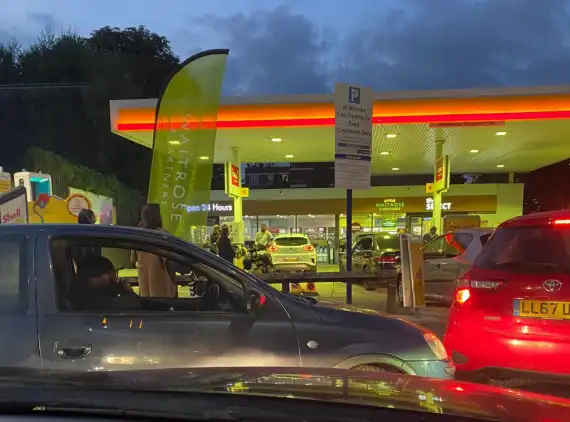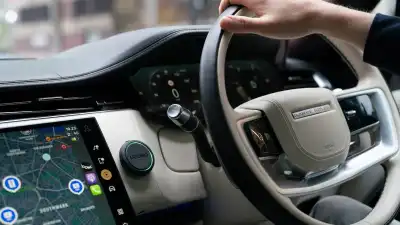
The theory that gained the most traction was a claim that Britain’s fuel crisis had been staged by the Government to force consumers into buying a surplus of petrol that was stockpiled during successive Covid-19 lockdowns.
This argument centred on the belief that this fuel was about to ‘go out of date’ and that Boris and his motley crew were behind this wicked plan to ensure the fuel companies got paid. You can see one of the memes that was in circulation here.

There are a few reasons why none of this is true, not least because we here at Regit highly doubt this Government has the brainpower to come up with such marvel!
But, in all seriousness, here’s why…
Multiple industries impacted by driver shortage
The primary source of the fuel crisis is an industry-wide shortage of lorry drivers. You will have heard on the news that supply chains for food, clothing and even toys for Christmas are being hampered by an inability to get materials or the finished product from A to B.
Although fuel has been the industry hardest hit by this shortage, it certainly is not the only sufferer.
Nor is the UK the only country being affected by this. Yes, it looks to be the worst hit in Europe but again, it’s not the only country in pain.
There was no surplus during our lockdowns
It’s not true that low fuel sales mean the UK has a surplus of fuel at risk of going past its ‘best before’.
The stats show that as demand for fuel fell, so did the supply. The data available up until the first quarter of 2021 shows the supply of all petroleum exceeded demand in only one quarter since the start of the pandemic, amounting to 0.08% of demand.

Data also shows that their fuel stocks remained at normal levels throughout the pandemic. While there were increases as the country went into national lockdown in March and December 2020, stock levels quickly reverted to type.
Looking beyond just the stock at petrol stations, overall UK stocks of crude oil and petroleum products did not increase during the pandemic as claimed.
This means there were no big surpluses of fuel gathered during the pandemic which would now need to be sold quickly before they expired.
Fuel companies would be the major beneficiary, not the Government
The UK Government charges 57.95p per litre for petrol and diesel. This rate does not go up or down and has, in fact, stayed at this rate since 2010.
Simply rushing through fuel sales would not see the Government’s finances change by any significant amount, given that fuel usage will likely stay the same.
There is also an argument to say the Government will make less from this crisis over the course of the full month. The fuel shortage has impacted people’s habits. It’s seen more people stay indoors, more people work from home and therefore fuel usage is down. With monthly usage going down the need to top up over the long term reduces with it – thus reducing the amount of income both suppliers and the Government takes over a prolonged period.

As with any conspiracy, it requires 100% of those involved to keep quiet!
We’re all well aware of conspiracy theories and, as we marked the tragic 20 year anniversary of 9/11 last month, it’s likely that you will have heard in your workplace once more how George Bush was at the centre of it.
As with all conspiracies, whether fuel crisis or 9/11, it takes 100% of those ‘involved’ to stay quiet for their lifetime to avoid the truth to come out. Admittedly, we’re still in this fuel shortage so there may be time yet, but as you can probably tell from the tone of this piece, this writer at least reckons the chances of that being the case here to be, well, nil.
Let me know your thoughts in the comments below...



